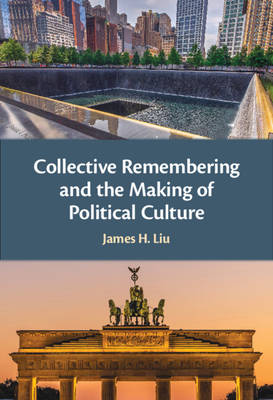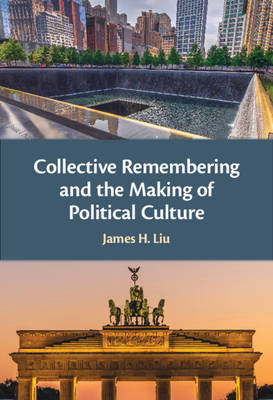
Bedankt voor het vertrouwen het afgelopen jaar! Om jou te bedanken bieden we GRATIS verzending (in België) aan op alles gedurende de hele maand januari.
- Afhalen na 1 uur in een winkel met voorraad
- In januari gratis thuislevering in België
- Ruim aanbod met 7 miljoen producten
Bedankt voor het vertrouwen het afgelopen jaar! Om jou te bedanken bieden we GRATIS verzending (in België) aan op alles gedurende de hele maand januari.
- Afhalen na 1 uur in een winkel met voorraad
- In januari gratis thuislevering in België
- Ruim aanbod met 7 miljoen producten
Zoeken
€ 168,95
+ 337 punten
Omschrijving
Collective memory can make and break political culture around the world. Representations and reinterpretations of the past intersect with actions that shape the future. A nation's political culture emerges from complex layers of institutional and individual responses to historical events. Society changes and is changed by these layers of memory over time. Understanding them gives us insight into where we are today. Encompassing examples from colonization and decolonization, revolving around the critical junctures of the world wars, this book illustrates how collective memory is produced and organized, through commemoration, through monuments, and through individuals sharing stories. Using concrete examples from around the world, James H. Liu shows how different disciplines can come together through shared concepts like narratives and generational memories to provide mutually enriching perspectives on how political culture is made, and how it changes.
Specificaties
Betrokkenen
- Auteur(s):
- Uitgeverij:
Inhoud
- Aantal bladzijden:
- 276
- Taal:
- Engels
Eigenschappen
- Productcode (EAN):
- 9781108833523
- Verschijningsdatum:
- 18/08/2022
- Uitvoering:
- Hardcover
- Formaat:
- Genaaid
- Afmetingen:
- 152 mm x 229 mm
- Gewicht:
- 539 g

Alleen bij Standaard Boekhandel
+ 337 punten op je klantenkaart van Standaard Boekhandel
Beoordelingen
We publiceren alleen reviews die voldoen aan de voorwaarden voor reviews. Bekijk onze voorwaarden voor reviews.









